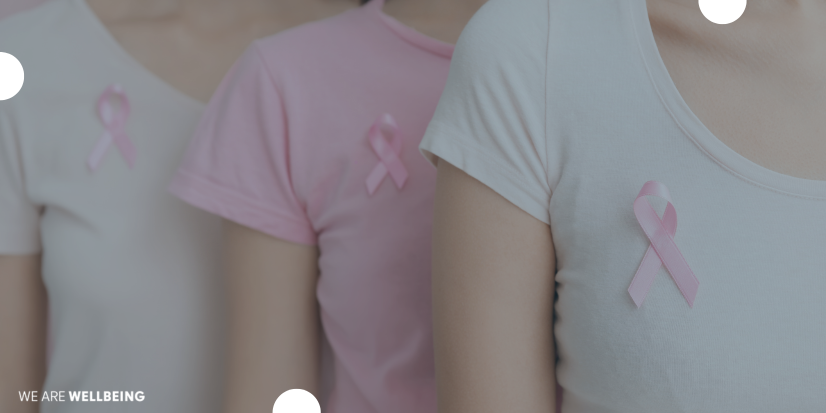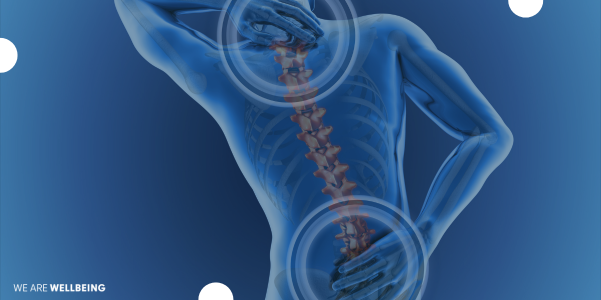October marks Breast Cancer Awareness month. A campaign which aims to raise awareness of the disease which affects over 55,000 new women in the UK every year (Cancer Research UK). In this blog, we will guide you through how to check your breasts, and signpost to available support. But first, lets take a log at some more statistics from Cancer Research UK.
- Breast cancer is the second most common cancer in women in the UK.
- The survival rate is high, 76% of women diagnosed in England survive the disease for 10 years of more.
- 23% of breast cancer cases in the UK are preventable.
- Although breast cancer in men is rare, it still affects around 400 men each year.
Breast cancer can affect anyone, with age and family history being potential risk factors. However, there are things you can do to further reduce your risk. These include maintaining a healthy weight, reducing alcohol intake and partaking in regular exercise.
How do I check my breasts?
Regularly checking your breast is important, and we have pulled together a helpful 4 step guide.
- Get into a routine: By checking every month, you will get to know what is normal, and are likely to notice changes quicker. For women, breast tissue does change throughout the monthly cycle, and during pregnancy, breastfeeding and the menopause. It may take a few months to get to know your breasts and this is why checking regularly is key. You might even want to set a monthly reminder.
Women in the UK will automatically be invited for NHS breast screening every 3 years between the ages of 50 and 70. For more information, click here.
- How to check: Check wherever feels comfortable for you, this could be in the bath or shower, standing in front of a mirror, or lying in bed. Breast tissue extends to your armpits and collarbones, so make sure you examine this whole area.
- What to look (and feel) out for: Visual changes could include puckering or dimpling of your skin, visual lumps, discharge from your nipple, changes in size or shape to your breast, a rash, and a change to nipple shape or position. You may feel a lump or swelling, or an unusual and persistent pain in or around your breast.
- Get it checked: If you experience any of the above, make sure to visit your GP and get it checked. Although many cases are likely to be harmless, they will be able to examine the area and refer you for further checks at a breast clinic if needed. A specialist may then offer a mammogram, ultrasound and/or biopsy to determine causes. To use the words of breast cancer charity Coppa Feel – if in doubt, get it checked out.
If you have been diagnosed with breast cancer, Breast Cancer Now and Cancer Research UK, have some very helpful information on the different types of diagnosis and treatments.
It’s also important to remember, breast cancer doesn’t just affect women. If you are trans-gender or non-binary, Macmillan have a lot of information regarding screening options. And although rare, men can be affected, Cancer Research UK have a helpful page on breast cancer in men.
How can I support my employees?
Cancer can feel taboo for some people, so creating an open and supportive environment in the workplace is crucial. This could be through sharing information (posters, signposting, through your works intranet etc.), offering support groups and promoting awareness days and months.
Allowing employees to attend doctor and hospital appointments, and screenings during work time will also show support.
Here at We Are Wellbeing, we offer a number of webinars on women’s health, men’s health and cancer to further raise awareness and start the conversation within the workplace. If this is something you are interested in, please get in touch.
Conclusion
Although October is Breast Cancer Awareness month, it’s important to check, and promote checking breasts every month. Remember, the earlier breast cancer is detected, the earlier treatment can begin. If you, or anyone you know needs further support there are some great charities linked in this blog.







